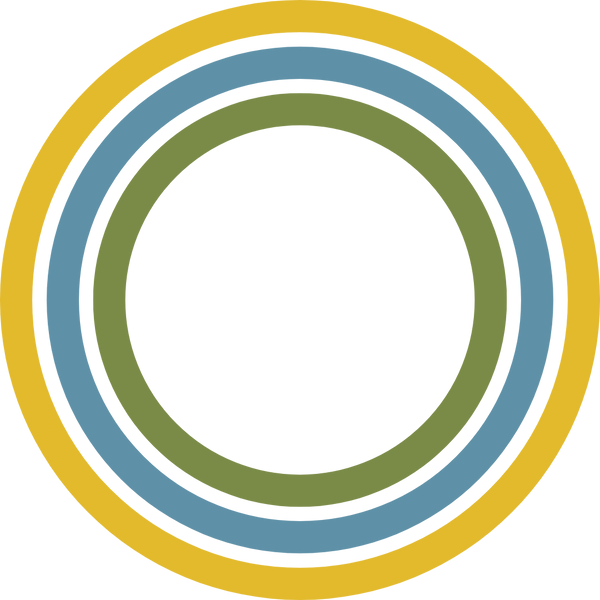
The Language Barrier: The most subtle self care hurdle
Share
If you’re one of those people who keeps saying that SOMEDAY you’re gonna start taking care of yourself, but you feel like you never actually do, you’re going to want to hang out and listen to this episode.
Welcome to the podcast, Unlocking Wellness! I'm Crystal McLain, Licensed Clinical Massage Therapist, and Self-Care Coach and I'm exploring ways to unlock our wellness barriers so we can create self care independence, because we find our freedom when we’re living well.
Hello my friends, I hope you’re doing well, and if not, then I hope you find this episode helpful.
Today I want to dive into this illusion that we’re not already practicing self care. Because honestly, the whole idea is fucking bonkers. And not only that, but it could be setting you up to be perpetually frustrated and unmotivated, and maybe even feeling a bit like a failure.
So, let’s stop doing that, okay?
Okay.
So, the other day I noticed a friend of mine snagged one of my digital downloads (which was very exciting), and so I sent them a message to thank them. And they replied back with a lovely and thoughtful response, but also said this, “I’m hoping I can get back to taking care of myself.”
At first I felt excited about their words, but something compelled me to hang out with their message for a bit. I actually sat there for a good bit of time, reading those words over and over again. “I’m hoping I can get back to taking care of myself.”
And each time I read this message something new popped up in my coaching brain. So, with their permission, of course, I decided to unpack this statement.
“I’m hoping I can get back to taking care of myself.”
So, as a coach, one of the first things I do is point out the language that folks are using. And with this particular statement, the word HOPE jumped out at me.
“I’m hoping."
Now, personally, I like to reserve hope for the things that I actually do not have any control over. You know, things like winning the lottery. I hope I win Powerball
Side note: I’d probably have better chances if I actually played….
Anyway, hope means you WANT something to happen. I doesn’t actually have anything to do with taking any form of action.
Hope can coat the brain with a sticky film of longing and desire. Like, if I said I hope I get a piece of chocolate cake, hoping for it doesn’t actually GET me any. But it DOES leave me craving, and makes me VERY aware of the absence of cake in my life.
HOPING to take care of myself will sucker punch my brain and leave me longing to practice self care. It won’t actually motivate me into doing it.
The brain likes specifics and is a natural problem solver. When we use words like hope, wish, and want, that’s what the brain is going do. It’s going to continue hoping, wishing, and wanting. But if we use words that are definitive and actionable and present tense, it will kind of trick the brain into convincing you into being a bit more proactive. That’s because the brain hates being wrong. So eventually if you ditch the hopes and replace them with declarations of DOING, your actions will eventually start to align with your words.
It’s a pretty cool brain hack.
Alright, so the next thing that caught my eye.
“I’m hoping I CAN get back to taking care of myself.”
The word ‘can’ means that you’re either able or permitted to do something. So, this seemingly benign statement isn’t just leading you on with wanting to practice self care, but rather, wanting to even be ABLE or ALLOWED to.
Just to drive the point, what if we didn’t complete the sentence, what does that feel like if I simply say: “I’m hoping I can.” Seriously, how does that feel?
I feel like I’m five and my mom just told me that maybe tonight we can have ice cream. …it’s not very empowering feeling, right?
The last thing I want to look at is this: “I’m hoping I can GET BACK TO taking care of myself.”
Getting back to something means that you’re not currently engaging in that thing.
Now, do I believe that this person is truly NOT engaging in some form of self care? No. No, I do not. I follow them on instagram and have witnessed snap shots of all sorts of self care. BUT, this statement “I’m hoping I can get back to taking care of myself” actually implies that they’re not taking care of themself already.
This probably goes without saying, but that would be pretty hard on the ego. If we’re coming at self care from a place where we believe we’re not already practicing it, then self care is going to seem like a way bigger deal than it actually is.
And when we feel overwhelmed, we shut down. We find reasons to NOT to practice self care. Again, words are powerful, and your brain is analytical. If you say “I’m hoping I can get back to taking care of myself,” that sounds like an enormous task. You are already juggling SO MANY things (including forms of self care you may be overlooking), and when your brain conjures up this as its slogan for self care, it’s gonna come back with a bucket full of “fuck it”.
Now, I can hear some people saying things like, “well, that’s not what they really meant. Or, you’re splitting hairs, you’re being too literal.”
But here’s the thing, these casual words are a big frickin’ deal to the brain. Words are a HUGE part of how our brains are programmed. And if I’m saying “I’m hoping I can get back to taking care of myself”, deep in my subconscious there will be a part of me that will believe that I’m not currently taking care of myself, nor am I able to, but, man, I sure wish I could.
GAH!
Too much, right?
So, what do we do instead?
We practice becoming aware of our language. Notice I said “practice.” If you decide to following along with my self care shenanigans at CMC, you’re going to see this word pop up a LOT. To practice means to repeat an exercise in or performance of an activity or skill so as to acquire or maintain proficiency in it. In other words, paying attention to your words is something you’re gonna have to keep doing over an over again so it becomes more familiar. (Spoiler alert, you have to do this with ANYTHING you want to add to your life).
BUT, once you’re aware of your language, you can start changing it.
When you break down your language you’ll notice what’s driving the bus. Is it something inspiring and supportive, or something passive and deflating?
Are you hoping, wishing or wanting? Or are you doing?
Are you able or allowed? Or are you capable and empowered?
Are you belittling your efforts, Or are you giving yourself credit for all that you’re ALREADY doing?
Are you generalizing? Or are you being specific?
Now, like I said before, this comment came from a friend of mine, and I happen to know that there are some pretty big changes going on in their life right now (and they’re managing all of this in a world with a pandemic). So, I’m willing to bet that what they MEANT to say was something more along the lines of,“I’m looking forward to getting back to specific self care routines that I had to put on hold while I focus on these transitions.”
Can you see the difference in the feeling between the two statements?
“I’m looking forward to getting back to specific routines that I had to put on hold while I focus on these transitions.”
vs.
“I’m hoping I can get back to taking care of myself.”
The phrase “looking forward to”, makes me feel excited and ambitious!
When I say I’m “getting back to a specific thing,” I’m telling my brain that there are indeed OTHER things that I’m doing for my wellness. And it points to the exact thing that I’m excited about incorporating back into my life.
And, finally, when I declare that something is merely on hold while I focus on something else for the time being, two important things happen.
First, putting something on hold tells my brain that yes, my dear, we’re getting back to that. It’s definitely on the list of things to do, and we shall indeed be doing it. The second important piece is the reason WHY things were put on hold.
Because the brain is a naturally curious problem solver, it wants to know why. It thrives on making sense of things. So when you practice self awareness, and figure out why you’re doing/feeling/being whatever it is you you are, it gives you more power in the control center of your brain.
If you’re looking to deconstruct your language and figure out what’s really driving the bus, I have a couple of digital guides that can help with that. They’re just five bucks each, or free when you become a Patreon Member.
I love you.
I appreciate you.
Thank you so much for being here.
I’ll see you soon.
SHOW NOTES:
Recommended Digital Guides: (1) Deluxe Mindset Makeover Kit (2) Practical Goal Setting & Taking Action
Memberships: Patreon
Newsletter: Sign Up
Instagram: @crystalmclaincreative
Buzzsprout: Start Your Own
Support My Mission: Contribute
